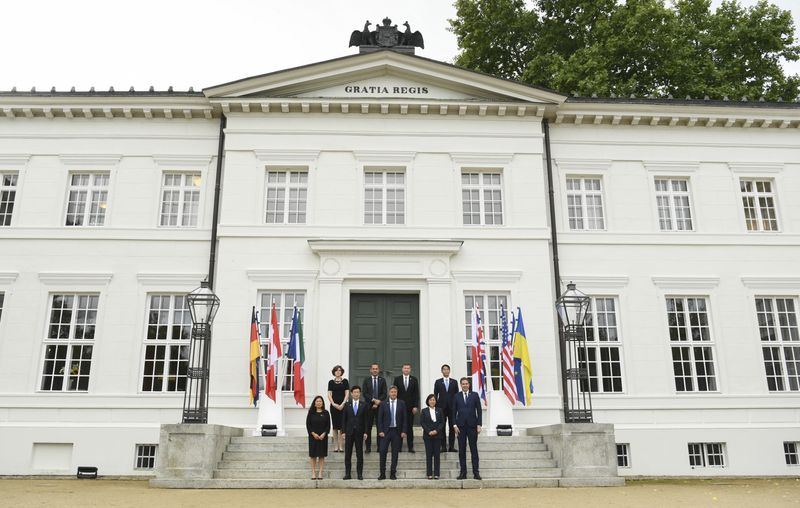G7 could give FX more attention: Mike Dolan By Reuters

© Reuters. G7 trade and Economy Ministers line up for a family photo in front of Neuhardenberg Castle, Germany, September 15, 2022. REUTERS/Annegret Hilse
By Mike Dolan
LONDON (Reuters) – Japan may seem like a lonely voice in the Group of Seven pleading for some currency calm, but the rest may be taking more notice than first appears.
Nearly every other economic and political metric these days seems to have returned to the 1980s – so thoughts of significant G7 currency market intervention seem less outlandish against that backdrop.
The U.S. dollar’s index has only recorded year-on-year gains at the current 20% pace on four other occasions since its historic surge in 1985 prompted the then G5 powers to collectively intervene to cap the rampant greenback.
Those four extreme dollar surges came during the early 1990s European exchange rate crises; the euro’s swoon in 2002/2001 after the launch of the single currency; the aftermath of 2008’s banking bust; and the oil collapse of early 2015.
At least two of those moments involved some form of G7 or G20 action to calm the horses.
Is there a case for it to happen again?
Reinvigorated as an effective governing council for the world’s major democracies at a time of fractious geopolitics, the G7 may have other more urgent battles to fight right now.
G7 finance ministers’ latest virtual meeting this month focused squarely on plans for a price cap on Russian oil as another sanction on Moscow for its invasion of Ukraine and as a way to limit soaring energy costs and the inflation that unleashed.
There was no discussion of the alarming acceleration of the dollar against Japan’s yen, the euro and Britain’s pound to its highest levels in decades – or the added stress that creates on dollar-priced energy imports into those countries, which in turn compounds both inflation and the economic hit there simultaneously.
Heralding growing yen anxiety in Tokyo ever since, Japan’s finance minister Shunichi Suzuki made repeated verbal protests against excessive currency moves on the sidelines of the meeting – adding he would coordinate any response with his allies.
Yet, no mention of exchange rates found its way into the very single-issue communique.
Similarly, a more wide-ranging statement from the G7 leaders summit in Germany at the end of June seemed to bat away currency issues as a background issue, making only passing reference to long-standing language on the desire for stable exchange rates.
But as Europe and Japan face blistering dollar energy bills this winter and Europe’s central banks at least chase an increasingly hawkish Federal Reserve in lifting interest rates, the soaring dollar is a dangerous irritant to their ability to navigate what now seems like a full-blown energy and economic war with Russia.
And if, as the World Bank restated on Wednesday, the risk of global recession is rising rapidly, then a soaring dollar is an aggravator both for Europe and Japan as well as many more fragile…
Read More: G7 could give FX more attention: Mike Dolan By Reuters
